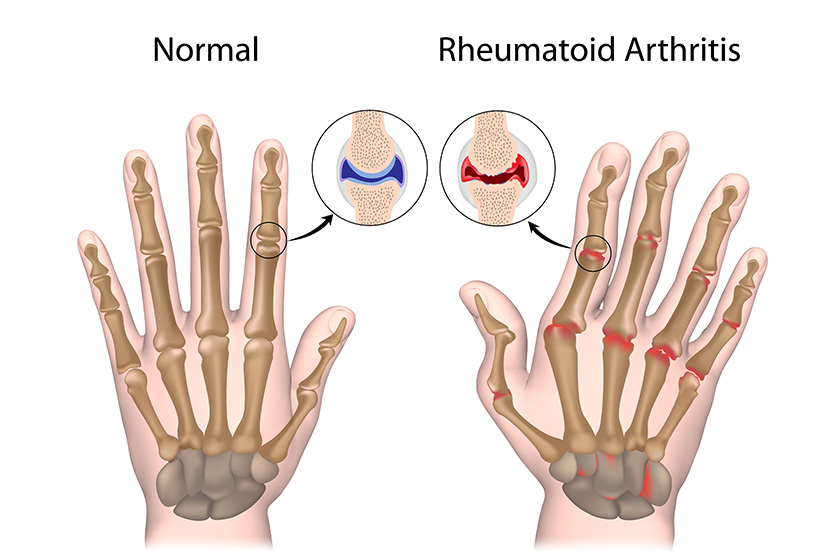Elderly onset rheumatoid arthritis occurs when the body’s immune system starts to attack the joints causing pain and swelling around the joints. This can cause major problems for those who have elderly onset rheumatoid arthritis as it impacts their mobility and balance. It is important to note that anyone can get rheumatoid arthritis at any stage in their lives, but it commonly shows up around age 30 to 50. It is only when rheumatoid arthritis shows up between age 60 to 65 then it becomes elderly onset rheumatoid arthritis.
Rheumatoid arthritis is an autoimmune disease that causes the lining of the joints to become inflamed, damaging the joint. Additionally, it can impact the other tissues in the body that can cause issues in organs like the heart and lungs. It is uncertain how one gets rheumatoid arthritis but there are some factors that can increase the risk of developing rheumatoid arthritis. Factors like age, gender, genetics and history of smoking can play a part in increasing the risk of developing rheumatoid arthritis. Here are some signs of elderly onset rheumatoid arthritis to take note!
Joint Pain
One of the most common signs of elderly onset rheumatoid arthritis is joint pains. There may be evident swelling and redness around the joints. It will cause stiffness in the joints and cause difficulties in walking or moving around. They may require a walking aid or mobility aids that can help them move around. To help with joint pain, your loved ones can use a heating pad to help loosen the joins and relax the muscles. Alternatively, they can take a warm bath to soak and soothe the muscles and joints. With some stretching exercises, it can help to reduce the pain between the joints. Some decompression exercises will definitely help relieve the pain. If your loved ones feel a lot of pain and discomfort, they can choose to take supplements. Vitamin D pills are good to help with bone health and can help with muscle pain.
Fever
Your loved ones with elderly onset rheumatoid arthritis could have low-grade fever without any explanation. Fevers are the most common indication that your immune system is fighting bacteria and diseases. Fevers often occur due to an infection in the body. Fevers can even cause chills and shivers and a loss of appetite. If the fever is a low-grade fever, it will generally go away within a few days thus, it would not be necessary to treat the fever if it does not cause any discomfort or pain. If your loved ones have high grade fever and it is persistent, do seek medical help immediately. You can help the symptoms by drinking more water or even taking paracetamol.
Weight Loss
Sometimes patients with elderly onset rheumatoid arthritis will experience weight loss. This is because the pain and stiffness from the muscles and joints will make it difficult for them to exercise and thus, it becomes difficult to maintain healthy muscle mass. Additionally, due to diarrhea, nausea and vomiting due to rheumatoid arthritis, it can cause patients to lose their appetite, causing unintentional weight loss. Do seek medical help if your loved ones experience all these signs so that they can have a proper diagnosis.







